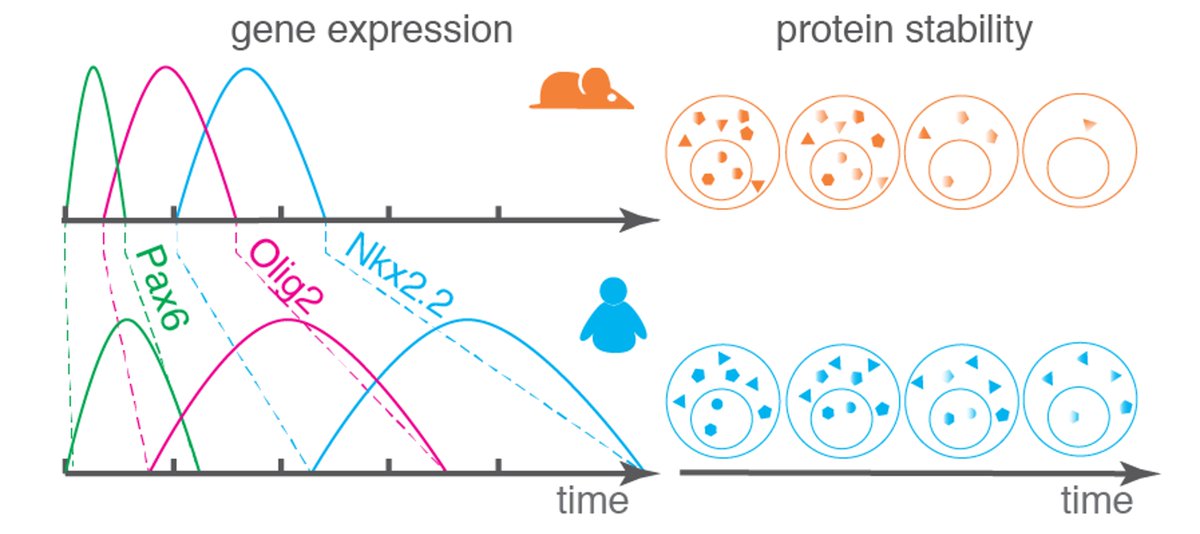Our work #aboutime "Species-specific pace of development is associated with differences in protein stability" is now published science.sciencemag.org/content/369/65…. What determines the pace of embryonic development?
A comparative temporal analysis of the developing spinal cord in human and mouse embryos showed that the sequence of events in motor neuron formation is the same, yet the pace is different between mouse and human. What could be the cause? 🐭⌛️🚻⏳ 

We developed mouse and human motor neuron differentiation models from embryonic stem cells and found that human motor neurons progressed at a slower rate than mouse cells. This suggested that species-specific tempo differences are cell-intrinsic. 

In addition, the cell-intrinsic differences in tempo occurred transcriptome-wide, suggesting a proportional scaling during all the differentiation process to motor neurons, being 2.5X slower in human than in mouse. 

What was the cause behind the species-specific tempo? The sensitivity of the cells to signals (Sonic Hedgehog) was unchanged between mouse and human.
Differences in the sequence or the gene regulation of the key gene Olig2 did not explain the differences either.
Differences in the sequence or the gene regulation of the key gene Olig2 did not explain the differences either.
In these experiments, we analysed the gene expression and number of mRNA molecules of a mouse cell line with a human chromosome that carries the human Olig2 gene and its regulatory sequences. 

Next, we measured mRNA and protein turnover and… EUREKA! Changes in protein stability correlated with developmental tempo, such that slower human pace corresponded to increased stability of the proteome.
(Measurements of protein stabilities in human cells were by far the toughest experiments of all. Really lucky to work with Despina Stamatakis, she is an authentic heroe!)👩🔬 

In silico modeling by @2piruben helped us discover that decreasing the degradation rate of key transcription factors can explain the slower temporal progression in human compared to mouse, and suggests a role for protein turnover in developmental pace. 

Altogether, our work suggests that differences in protein turnover play a role in interspecies differences in the pace of motor neuron differentiation. 

Excitingly, our findings are complementary to those on the species-specific oscillation periods of human and mouse segmentation clocks by @EbisuyaMiki. Beautiful work 😍science.sciencemag.org/content/369/65…. Now the search for what determines species-specific rates of protein turnover starts!
Thanks to @briscoejames and all authors, everyone @TheCrick, collaborators, @VanderhaeghenP2 for his perspective published alongside and community for their feedback throughout the project.🍾🍾🍾
• • •
Missing some Tweet in this thread? You can try to
force a refresh




